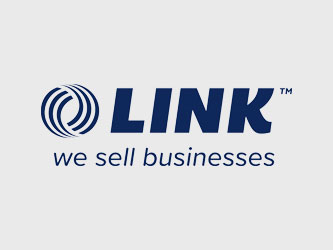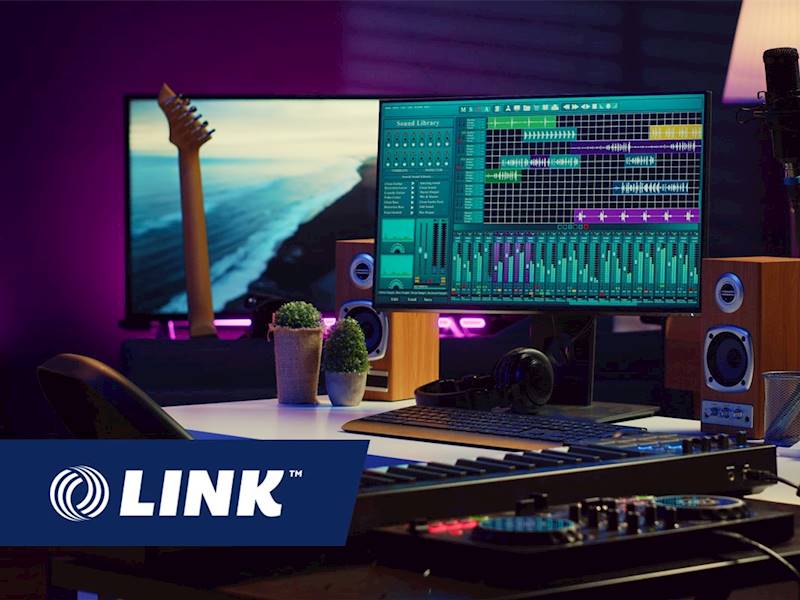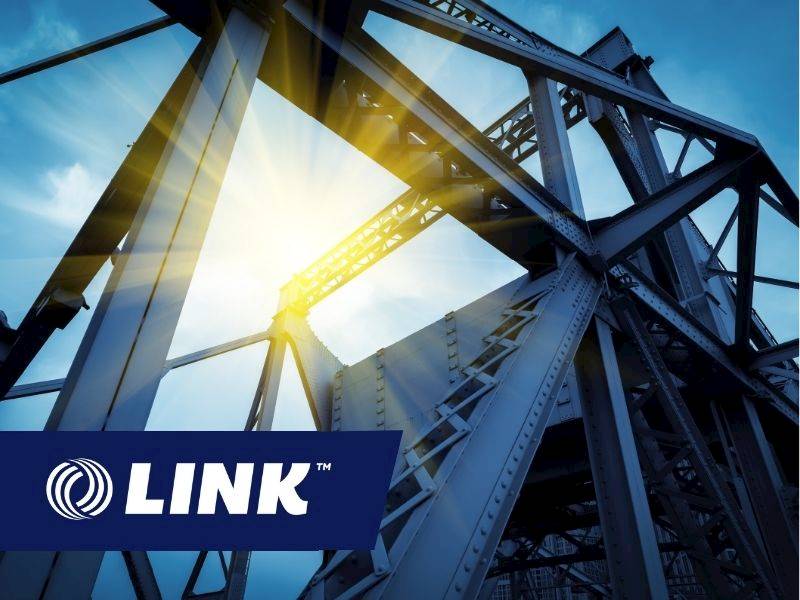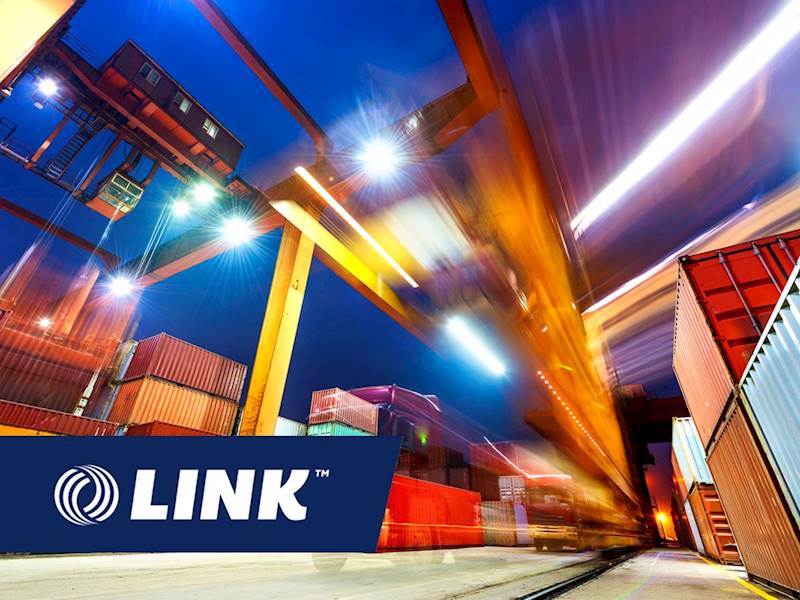Buy a Business in Australia

Proven
Expertise

Internationally Acclaimed

Buying
Smarter
3,000+
Online seminar
How to buy a business
Business Affordability Calculator
What can I afford?
Email alerts
Want to know what's for sale?
Register your details and receive priority email notifications about businesses for sale that meet your preferred price range, location or industry
Frequently asked questions
LINK values a business based on the following:
- The income the owner will generate.
- The popularity of the sector.
- The risk element involved.
It is commonplace for the price of a business to reflect the performance of its industry. Higher prices are associated with more attractive industries in a low-risk market. As a result, the value of the business will be greater than for one in a less desirable sector and perceived to have a higher risk factor attached to it, even though both businesses generate similar profits.
The valuation of small owner-operated businesses typically hinges on the available cash surplus at the owner’s disposal. This figure tends to fluctuate based on factors like the specific industry, geographical location, and the duration the business has been in operation.
In contrast, larger businesses are valued through a calculation of return on investment (ROI) or a determination of the price-to-earnings ratio (PE). This approach, once again, exhibits variability based on the industry in question and the extent of the net profit generated by the business.
When you are ready to buy a business, you will meet with one of our business brokers, who will provide you with an overview of the business values prevalent within the industry sectors that pique your interest.
At LINK, we’ve noticed a trend of high-demand businesses in specific industries selling extremely quickly. In order for buyers like yourself to be notified about these business opportunities, LINK has created automatic emails to send when a business meeting your criteria becomes available. This exclusive service is available through our website via the register toolbar, or you can learn more by contacting one of our talented brokers.
Due to the competitive nature of these industries, many businesses sell before they are advertised. By registering to buy a business you will receive priority notifications of all relevant new listings from any one of our team of brokers, not just from the broker you have initially met with.
When you’re ready to buy a business, here’s where to start: Consult with an Industry Specialist Broker: Begin your journey by arranging a meeting with one of our industry-specific business brokers. These professionals often come with prior business ownership experience in the same industry, offering you valuable insights into current trends, expectations, and insider information. During this meeting, you can discuss your interests, aspirations, and requirements. Suppose the broker currently has a business in their portfolio that aligns with your criteria or comes across a suitable option later on. In that case, they will keep you updated about its availability.
Explore the LINK Website: You can actively explore the LINK website to fine businesses for sale within your desired industry, price bracket, and location. If you would like to know more about a business, you’ll be asked to sign a Deed of Confidentiality before receiving more detailed information about the business. This step maintains the privacy and confidentiality of the business and its current owner(s). Business owners rely on this assurance to ensure that sensitive information shared with pre-qualified buyers is kept secure.
When you come across a business, some information will be available while other details remain confidential until you progress further with the purchase process. Some owners prefer to wait until an offer is made before they share too much about their business. This is purely because many aspects of a company’s operations are sensitive, so intentional confidentiality is crucial until a serious buyer has indicated their genuine intention to buy the business by making a conditional offer.
A conditional offer typically hinges on the undertaking of due diligence, a procedure in which you, the buyer, requests specific details about the business’s operations for examination. The owner then provides this information that was initially withheld. with the owner providing this information. Throughout this period, the buyer is obligated to uphold confidentiality and is prohibited from sharing any information with third parties, excluding professional advisors involved in the transaction.
The due diligence process offers the prospective buyer the opportunity to verify all details before they buy a business thoroughly. If you, the buyer, are content with the findings, the agreement advances, and you assume ownership of your new business. On the other hand, if you find the due diligence results unsatisfactory, the owner is informed, and the agreement is terminated. The deposit held in trust is then promptly refunded in its entirety.
The first step of your journey to buy a business is to figure out how much money you have available. Gaining a clear understanding of this prior to your search for your new business is necessary because it ensures you are looking at accurate and realistic options that suit your situation. You can achieve this by calculating how much cash you have available plus other assets (like property), you could borrow against.
When you’re working with a business broker, it’s important to let them know how much money you have available to invest in your prospective new business. This will help them direct you to a range of potential options that align with your price criteria. Additionally, business brokers will understand which businesses for sale are more likely to secure financing and if the seller is prepared to finance some of the purchase price.
Certain types of businesses pose challenges when it comes to securing loans solely based on the business itself. This can be attributed to the difficulty banks may encounter in obtaining adequate collateral. For example, retail stores primarily rely on constantly rotating stock as their primary asset, which doesn’t offer substantial security for a bank. However, if you own a property, you may explore the possibility of utilising it as security for a mortgage to acquire the business, reducing the need for a large upfront cash investment.
If you want to buy a business in Australia, a business broker will assist you throughout every step of the process.
When you first indicate your interest in buying a business, the business broker will draft a sale and purchase agreement on your behalf. This document serves as your formal offer to acquire the business and should contain specific terms to safeguard your interests during the transaction. Similarly, the business owner will seek assurance that the confidentiality of their business is upheld throughout this procedure.
The agreement used includes provisions that safeguard both you as the buyer, and the business owner. It encompasses essential details about the business, your offered price, and any specific conditions related to the offer. At this point, you’ll also be required to pay a deposit. When you purchase through a licensed Real Estate company like LINK AU, this deposit is held in a trust account until the agreement becomes legally binding. If the conditions you’ve specified for buying the business are not met, your deposit is promptly refunded in full, without any deductions. The trust account operates under stringent legal regulations and undergoes regular audits.
It is wise to have your lawyer review the agreement prior to signing it. You should also ensure that the lawyer you are working with has a good understanding of the process of buying a business in AU. It’s important to note that business brokers are not able to provide legal counsel while lawyers are not experts in selling businesses. Your lawyer is entrusted with safeguarding your interests, while the seller’s lawyer is tasked with protecting their client’s interests. The agreement is designed to accommodate the needs of both parties. Ultimately, your lawyer works on your behalf, and you should have a voice in every aspect of the process.
After you sign the agreement and it is provided to the seller, they will either accept the offer or make amendments before returning it to you. From this point, you can accept their adjusted agreement or make your own adjustments. This phase of the process is called negotiation. It’s common for the agreement to go back and forth between the buyer and seller several times before both parties are satisfied with the terms. The business broker will liaise between both parties with a solutions-focused approach designed to reach an agreement that satisfies both parties.
You don’t need to have absolutely everything figured out before you buy a business you’re interested in. However, it is a good idea to think about some crucial questions to help guide your decision.
Price – Is the business within your financial criteria, and can you secure the necessary funds for the purchase?
Location – Is the business a suitable fit for your needs, and is its location fitting for this type of venture?
Lease – What is the duration of the lease, and does it include any rights of renewal (ROR)?
Rent – What is the cost of the rent and any additional associated expenses?
Staff – how many part-time & full-time staff are employed in the business?
Income – What is the expected income you will earn, and how many years has the business been in operation?
One of the most common questions aspiring business owners ask us is “what is the perfect business to buy?”, but the answer is: there is no such thing! Each business brings with it a slew of positives and potential challenges. To mitigate this, it’s important to buy a business in an industry that you are genuinely interested in. This will ensure you feel comfortable from the get-go and confident learning in your chosen environment.
Experience in your desired industry is not essential. We have previously sold businesses where the new owners did not have any prior experience in the industry they ended up buying in. However, they did have motivation to learn and grow. We recommend looking at businesses and considering how you can leverage your ideas and enthusiasm to enhance their profitability and productivity.
It’s not unusual for an aspiring owner to spot potential in a business that the current owner may overlook simply because of fresh perspective. Regardless of the business type and whether it’s ‘perfect’, ensure that it will bring you enjoyment and that the industry aligns with your passions.
LINK boasts a diverse portfolio of brokers, each specialising in different industries or high-value businesses. Whether you need experience in healthcare, technology, hospitality, or any other field, LINK has a skilled broker available to cater to your specific requirements. These industry specialists bring in-depth knowledge and a deep understanding of market trends, ensuring that you receive personalised advice and access to the most appropriate opportunities. With LINK, you can count on finding a broker with the expertise to navigate your specific industry and facilitate successful business transactions.
When you’re ready to buy a business, you can join our exclusive email list highlighting new listings, search our website for industry-specific opportunities (through the search box), or contact a broker in your selected industry.
Knowledge hub
 I recently enquired about a business and went through the process of purchasing the business. All questions in relation to the business were clearly explained. The process of obtaining financials, reply to questions associated with the business was answered very clearly and the process was made a comfortable as possible. I finally purchased the business and am very happy with the result. I would like to thank Con Tsonis for his professional approach and will most certainly use him again to purchase or sell a business Regards George
I recently enquired about a business and went through the process of purchasing the business. All questions in relation to the business were clearly explained. The process of obtaining financials, reply to questions associated with the business was answered very clearly and the process was made a comfortable as possible. I finally purchased the business and am very happy with the result. I would like to thank Con Tsonis for his professional approach and will most certainly use him again to purchase or sell a business Regards George  LINK is brilliant brokers that made the sale of my business incredibly smooth and easy. I was thrilled with how efficient and accommodating Nick Poulos was with anything we needed throughout the process. I highly recommend working with Nick from LINK if you’re considering selling your business in the future. Top results that exceeded expectations
LINK is brilliant brokers that made the sale of my business incredibly smooth and easy. I was thrilled with how efficient and accommodating Nick Poulos was with anything we needed throughout the process. I highly recommend working with Nick from LINK if you’re considering selling your business in the future. Top results that exceeded expectations  Our law firm JHK Legal, has a longstanding commercial relationship with Link Business Brokers and we have worked on a variety of business sales with them over the last decade. Their depth of experience and commitment to achieving the best outcomes for their clients is second to none. Blair Luckman and his team in Brisbane are specialist brokers and excellent managers of the sale process and we couldn’t recommend them more highly for anyone looking to sell or buy a business in Brisbane.
Our law firm JHK Legal, has a longstanding commercial relationship with Link Business Brokers and we have worked on a variety of business sales with them over the last decade. Their depth of experience and commitment to achieving the best outcomes for their clients is second to none. Blair Luckman and his team in Brisbane are specialist brokers and excellent managers of the sale process and we couldn’t recommend them more highly for anyone looking to sell or buy a business in Brisbane.  Great company to deal with from start to finish. Sonia is very approachable and always available when required and replies to any queries you may have very efficiently. Highly recommended.
Great company to deal with from start to finish. Sonia is very approachable and always available when required and replies to any queries you may have very efficiently. Highly recommended.  Kristy Kolaitis exceeded my expectations as a business broker by demonstrating a remarkable understanding of market forces and trends, providing helpful advice with the utmost professionalism, responsiveness, and attentiveness. With her honesty, integrity, and genuine concern for her clients' welfare, Kristy identified the ideal buyer and adeptly bargained a just and beneficial agreement. Based on my experience, Kristy is unquestionably the finest in her field, and I enthusiastically endorse her services.
Kristy Kolaitis exceeded my expectations as a business broker by demonstrating a remarkable understanding of market forces and trends, providing helpful advice with the utmost professionalism, responsiveness, and attentiveness. With her honesty, integrity, and genuine concern for her clients' welfare, Kristy identified the ideal buyer and adeptly bargained a just and beneficial agreement. Based on my experience, Kristy is unquestionably the finest in her field, and I enthusiastically endorse her services. International Industry Specialists
Recently Sold Listings

$997,500 ONO

Refer to Broker

$450,000

$75,000

$115,000 + Stock


LINK Corporate Brokers provide specialist services to represent only those businesses valued at $2m+

$990,000


LINK Corporate Brokers provide specialist services to represent only those businesses valued at $2m+

$3,300,000
Should I start my own business or buy an existing one?
Purchasing an existing business has various advantages over starting one from scratch. When you buy an established business, you gain immediate access to a customer base, revenue stream, and a proven track record, which reduces the uncertainty and time it takes to build a brand and generate income. An existing business often comes with a skilled and experienced team, saving you the time and effort required for hiring and training staff, as well as ensuring the continuity of operations. Purchasing a business provides access to pre-existing relationships with suppliers, distributors, and clients, which can be difficult to develop when establishing a new operation. Furthermore, an existing business may already have important assets and equipment in place, removing the need for significant upfront investments and allowing you to hit the ground running.
Buying a business can offer a clearer financial picture with historical financial records, making it easier to secure financing from lenders or investors, as they can assess the business’s performance and potential more accurately.



































